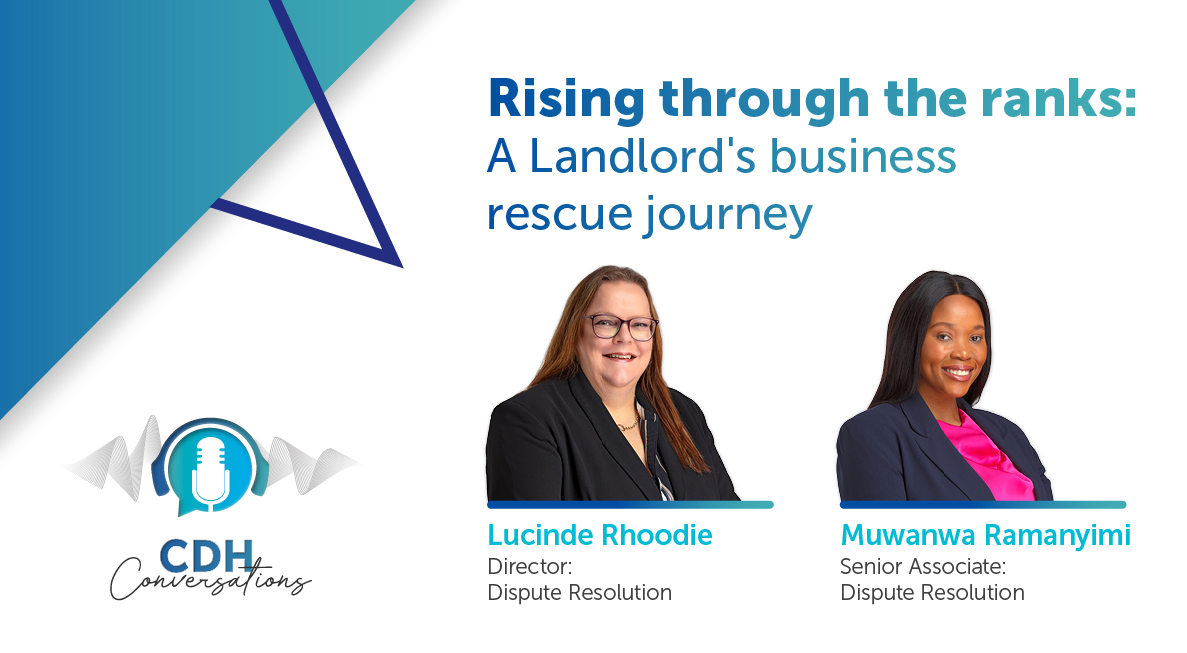Implementation of the final EPR Regulations for the electrical, lighting, and paper and packaging sectors is postponed to 5 May 2021
At a glance
- The Department of Environment, Forestry, and Fisheries (DEFF) published draft regulations on Extended Producer Responsibility (EPR) in June 2020 to implement waste management laws.
- The implementation of the EPR Regulations was initially set for May 2021 but was later postponed to November 2021 to allow industries more time to comply and provide input on the implementation process.
- The EPR Regulations aim to promote circular economy initiatives and hold producers accountable for waste generated by their products, with obligations including data submission, life cycle assessments, and take-back programs. There have been concerns about the clarity and practicality of some requirements.
However, the DEFF published a Notice on 15 January 2021, which provides that the implementation of the EPR Regulations is postponed to 5 May 2021. As a result, producers of products to which the EPR Regulations apply in any of the three sectors that are subject to the EPR Regulations, namely: the electrical and electronic equipment sector, the lighting sector, and the sector for paper, packaging and some single use products, now have until 5 November 2021 to comply with the requirements of the EPR Regulations, including that all producers and producer responsibility organisations (PROs) register with the DEFF and submit EPR schemes in accordance with the EPR Regulations by 5 November 2021.
It is understood from a recent statement by the DEFF that the delay in the implementation of the EPR Regulations follows recent engagements with affected industries following the publication of the EPR Regulations in November 2020 and requests by industry to make further inputs into the implementation process. According to the DEFF, the May 2021 implementation date is therefore intended to allow additional time for the registration, development, and submission of EPR schemes.
Overview of the EPR Regulations
The EPR Regulations are intended to contribute to implementing circular economy initiatives that break away from the “take, make, dispose” model of production which generates millions of tonnes of waste each year and which waste makes its way to landfills which are facing limited capacity.
The EPR Regulations are applicable to a group of products and to the producers or brand owners of such products. A producer is defined in the EPR Regulations as “any person or category of persons or a brand owner who is engaged in the commercial manufacture, conversion, refurbishment or import of new and / or used products as identified by the Minister…”. One of the issues that has arisen from the EPR Regulations is that the definition of producer is not entirely clear, making it difficult to identify who exactly they apply to.
The producer of a product identified by the Minister of Environment, Forestry and Fisheries (Minister) is required to submit to the DEFF an EPR Scheme or join a PRO which administers such a scheme on behalf of a group of producers. An EPR scheme is envisaged to be a system that puts into effect obligations under which producers take accountability in implementing extended producer responsibility and at a minimum requires cleaner production processes that minimise waste or avoid it; reducing the amount of waste by reducing the volume of products actually produced; reusing, recycling, recovering, treating and eventually disposing of waste stemming from their products; and comply with the requirements for programmes planned to contribute to government priorities such as decent work creation and paying a living wage to all registered informal waste collectors.
The EPR Regulations set out a number of duties and obligations on producers, although there seems to be a conflation between the obligations and duties of producers and PROs with possible duplication of such obligations and duties. These obligations and duties include requirements to:
- to collect, record and submit data to the South African Waste Information System (SAWIS);
- to conduct a life cycle assessment of its products within three years of the implementation of the EPR scheme;
- to consider changes in the production process to bring about more environmentally friendly products and to reduce toxicity in the post-consumer stage;
- to keep records of the quantity of the products on the market, their generated waste, and the collection, sorting, recycling, and recovery of the waste arising from the products;
- to implement mandatory take-backs of its products at the end of the life cycle; and
- to submit annual performance reports of EPR schemes measured against the targets set out in the Notices.
Since the publication of the draft regulations, potential producers and industries have raised concerns about the interpretation and the impracticality of some of the EPR Regulation requirements. These concerns mainly deal with the applicability of the EPR Regulations to certain industries, as well as interpreting certain ambiguous requirements as well as outdated target requirements.
The postponement of the EPR Regulations and Notices introduces further opportunity for producers / affected industries to engage further with the DEFF. Further pro-active engagement will hopefully ensure that the eventual implementation of the EPR Regulations, and therefore the establishment of effective EPR schemes will allow for the successful realisation of its intended purpose, being to address the issue of waste management and waste reduction in South Africa.
The information and material published on this website is provided for general purposes only and does not constitute legal advice. We make every effort to ensure that the content is updated regularly and to offer the most current and accurate information. Please consult one of our lawyers on any specific legal problem or matter. We accept no responsibility for any loss or damage, whether direct or consequential, which may arise from reliance on the information contained in these pages. Please refer to our full terms and conditions. Copyright © 2026 Cliffe Dekker Hofmeyr. All rights reserved. For permission to reproduce an article or publication, please contact us cliffedekkerhofmeyr@cdhlegal.com.
Subscribe
We support our clients’ strategic and operational needs by offering innovative, integrated and high quality thought leadership. To stay up to date on the latest legal developments that may potentially impact your business, subscribe to our alerts, seminar and webinar invitations.
Subscribe



